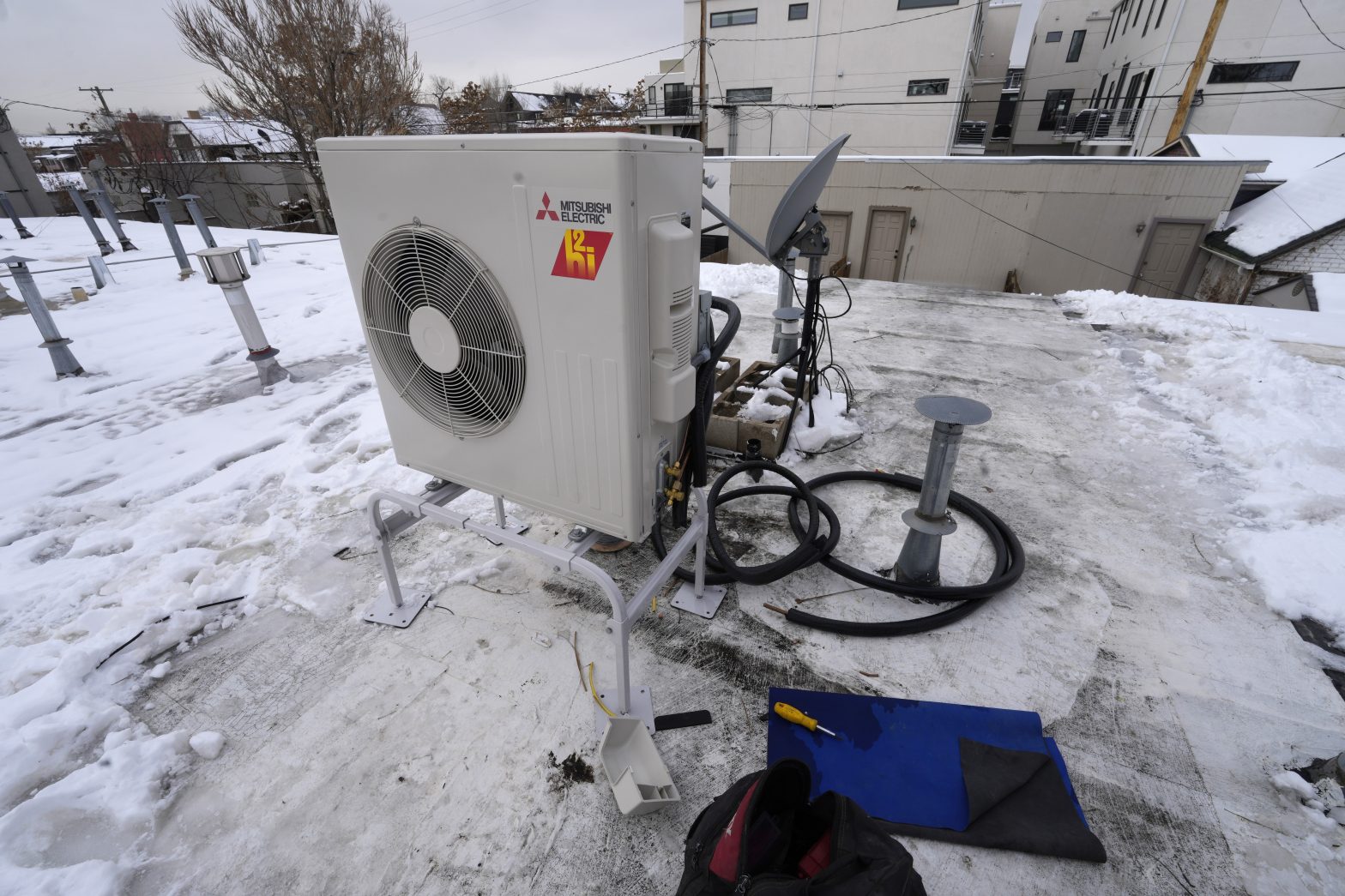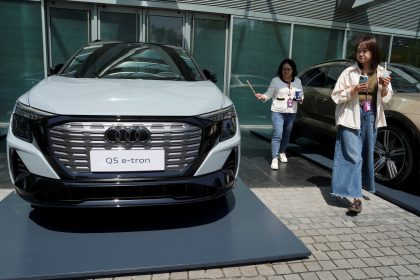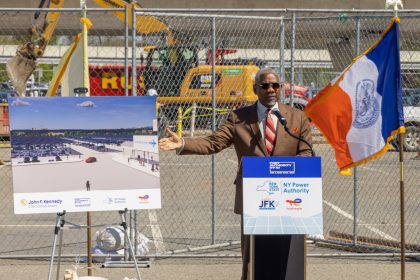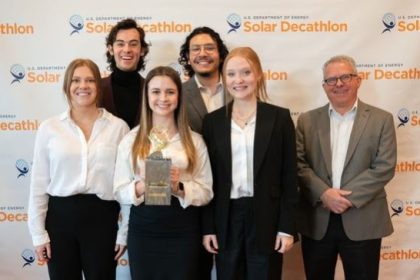Governors, Biden Administration Push to Quadruple Efficient Heating, AC Units by 2030

A group of 25 state governors that make up the U.S. Climate Alliance and the Biden administration announced a pledge Thursday to quadruple the number of heat pumps in U.S. homes by 2030, from 4.7 million to 20 million.
Heat pumps use little electricity, yet are able to heat and cool buildings. Since they often replace oil or gas furnaces that add greenhouse gases to the air, they can meaningfully address climate change.
Buildings account for more than 30% of global greenhouse gas emissions.
The pledge on heat pumps is a collection of state initiatives to work toward the goal of ramping down emissions to zero by 2050. Pennsylvania and seven other states, for example, will look into developing a “clean heat” standard, meaning one for how non-polluting a heater needs to be.
Some major manufacturers of heat pumps, including Johnson Controls, Siemens and Trane Technologies released a letter of support following the announcement.
The governors in the alliance represent approximately 60% of the U.S. economy and 55 percent of the country’s population.
Washington Governor Jay Inslee called heat pumps “almost a miraculous solution” to three problems Americans face, “heating in the winter, cooling in the summer, and a reduction of carbon pollution.”
The reason heat pumps run on less electricity than other forms of heating is that they merely extract heat from outdoor air or underground and transfer it inside, instead of heating up a coil, for instance. They are just as good at cooling, pulling heat from indoors and dumping it outside or underground.
“Even on a winter’s day, heat pumps can take heat from outside, move it inside, and use less energy than if you were heating your house with a furnace,” said Stephen Porder, a professor of ecology and assistant provost for sustainability at Brown University. ”A furnace makes heat by burning something, (but) moving heat is more efficient than making it.”
In Providence, Rhode Island where Porder lives, there is more call for heating than air conditioning. In 2014, he said, he ditched his oil furnace and installed heat pumps. “My house is more comfortable, my energy bills are about half what they were before, and my house’s greenhouse gas emissions, even counting the electricity to run the heat pumps, have dropped by 75%. Plus, I now have AC, which I didn’t have before,” he said.
Because they help address climate change, heat pumps are highly incentivized under the U.S. Inflation Reduction Act, which provides a 30% tax credit. Other states and utilities offer additional tax credits on top of the IRA incentive.
“There is already a huge increase in heat pump installations in the U.S. Heat pump units outsold gas furnace units, previously the most popular type of heating system, last year,” said Amanda Smith, a senior scientist at Project Drawdown, citing data from the International Energy Agency.
“People have been struggling with home heating costs and high energy costs in Maine, especially the last couple of years because we’ve been so over reliant on global fossil fuel energy markets,” said Maine Governor Janet Mills. “I think people in Maine are interested in anything that will save them money, make their homes and businesses more efficient, and more comfortable financially.”
White House national climate adviser Ali Zaidi Zaidi noted rising demand for heat pumps will stimulate domestic manufacturing. But many clean energy businesses report shortages of qualified installers.
“We want to ensure that we’re not held captive to foreign supply chain issues … we want manufacturers here in the U.S. to get ready for high demand that we anticipate will follow this announcement,” said New York Governor Kathy Hochul.
Alexandra Rempel, associate professor of environmental studies at the University of Oregon, agreed heat pumps are more sustainable than traditional heating and cooling systems, but they are not highly efficient in extremely cold regions. Like other systems, they use refrigerants — chemical fluids that significantly warm the atmosphere when they leak. They also draw power from the same electrical grid as everything else, which is often powered by fossil fuels, so their sustainability depends in part on the amount of green energy generated in that region, she pointed out.
“Overall, the benefits do outweigh the limitations in most places, but there are some limitations,” she said.
The governors of Washington, New York, and California formed the U.S. Climate Alliance in 2017 after the U.S. pulled out of the Paris Agreement. Alliance governors have pledged to collectively reduce their greenhouse gas emissions by at least 26% by 2025 and at least 50% by 2030, compared to 2005 emission levels.
___
Associated Press climate and environmental coverage receives support from several private foundations. See more about AP’s climate initiative here. The AP is solely responsible for all content.

























